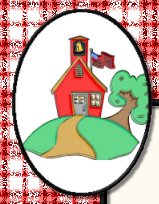
      
|
|
|
The following are suggestions for encouraging good speech in your child. We all do things that bring the results we like and do not do things that bring results we do not like. The more often something pleasant follows something we do, the more likely we are to do it again. For example, John is very fond of Marcia. If he walks the long way around past her house and happens to see her, it would be so pleasant he would probably do it again. If, on the other hand, as he passed her house he saw her father, who dislikes John, he would be less likely to pass her house tomorrow. We go through this kind of process in many ways. If we hear of a sale at a local department store and in attending it find lots of inexpensive things we need, we will probably attend the next advertised sale. The same principle, of course, applies to speech. When a child learns to say "rabbit" rather than "wabbit," and someone says, "That sounds nice," he is more likely to try to say "rabbit" the next time he uses the word. The success or failure of your child's changing his speech is dependent on your encouragement. He has learned to say the correct sound and uses it in his speech; whether or not he makes a habit of saying the correct sounds or words depends on what he stands to gain by doing so. The best kind of praise is praise that tells just what your child is doing right. For example, "I heard three good 's' words, excellent!" or "I can tell you're trying hard to remember your good 's,' good for you!" This type of praise is much more believable than saying, "Johnny, you're smart," when you hear one of his good sounds. We like to be praised for exactly what we are trying to do well. Here is a list of praises that I am sure will be obvious to you. These are best combined with a statement telling just what the child is doing correctly. For example, "Good, I heard three good 'r' words," or, "That's right, your 'r' sounded perfect." Good! I'm pleased with that. That's right! Great! Excellent! All right! Exactly right. You're working hard. Good thinking. Thank you. Good job. Show your dad what you can do. Some things that are not said but that mean the same as praise to a child are: smiling patting his head or shoulder winking hugging him nodding up and down holding the child on your lap looking interested stroking his arm or hand laughing holding his hand clapping your hands These forms of praise mean more to some children than to others. Another approach that can be used alon with praise, but that should not replace praise, is to start a token system with your child. The child earns certain things that are important to him by collecting points. Tokens are used for keeping track of how many points the child has earned toward a privilege, a food, or a plaything. A possible example is this: Johnny carries a pad of paper and a pencil with him. Whenever he hears himself using his good sound, he and/or his parents make a mark on the paper. For every ten good sounds used in his speech or for every 20 words practiced correctly in a list, he gets one point. He can keep track of how many points he has toward his goal by: dropping beans in a jar putting plastic chips on a ring saving pennies taking tickets making punches on a card writing numbers on a paper pasting stars on a paper making marks on a blackboard When your child has received perhaps 50 points, he can stay up later than usual to watch a TV show or have an ice cream cone or get a comic book, whatever is important to him. The reward he earns will depend on whether you prefer him to earn privileges, toys, or food, or a mixture of them. You and your child will have to decide how many points any item will cost him. There is no need to work if the rewards are priced too cheaply, and he will become discouraged if they are priced too dearly. Let him help make up his list of things to be bought with points. Feel free to adjust the cost later if things are priced too high or too low. Here are some examples of privileges: Pleass add some to this list! Only you know what is important to your child. Here are some food prizes: gum raisins M and M's jelly beans candied cereal lollipops peanuts chocolate kisses ice cream cookies lemon drops Cracker Jacks marshmallows Lifesavers apples Here are some play materials: make-up kits clay toy animals musical instrument boats paper cars mechanical toys blocks dolls badges kites marbles costumes jump ropes "dress up" clothes gliders balls model airplane kits puzzles picture books comic books crayons balloons printing sets playing cards coloring books any game records bean bags silly putty yo-yos play dough noisemakers (from Sourcebook of Articulation Learning Activities, by William J. Worthley, Ph.D., published by Little, Brown, and Co., Inc., 1981) Design and graphics © 2002 Designs by Dusty |
